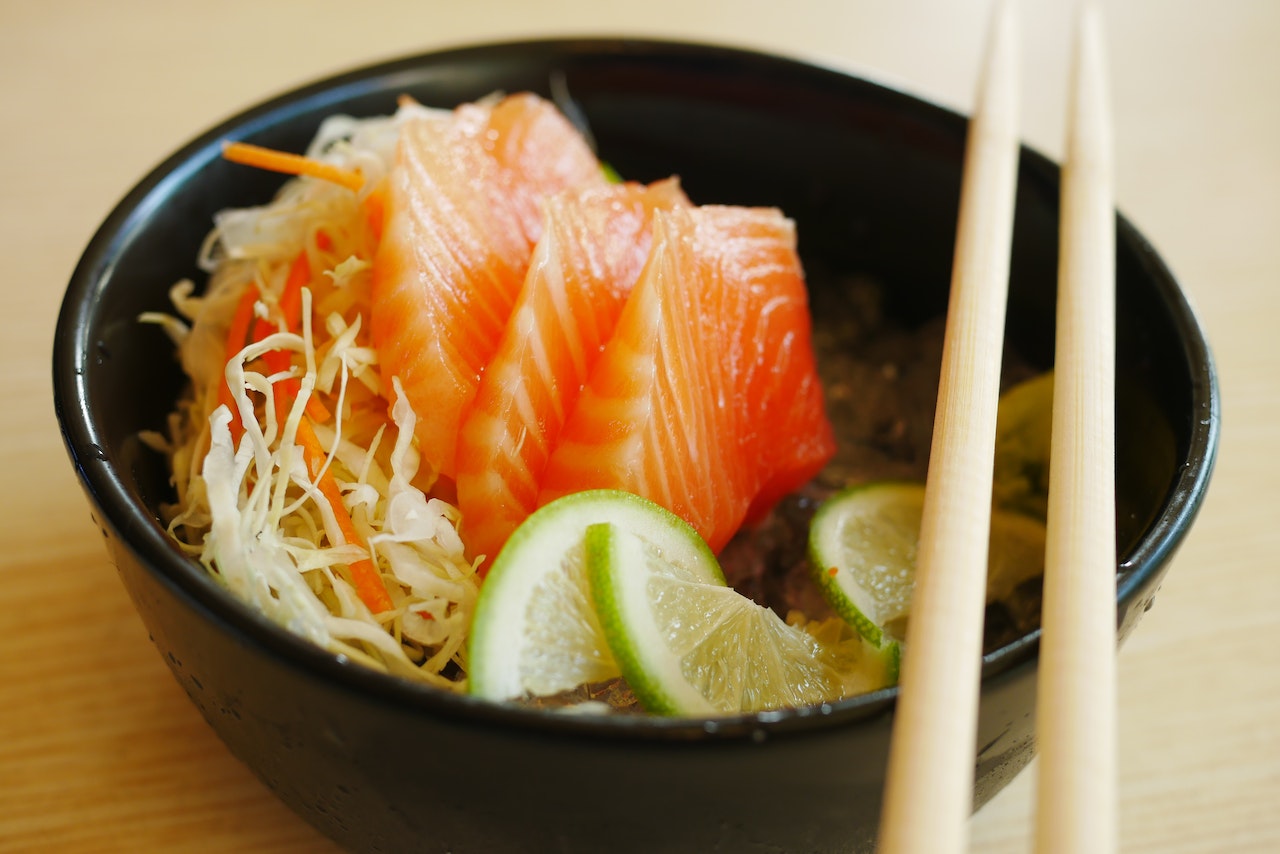We’re all aware of the importance of fueling our bodies post-run, but some foods simply work faster at repairing muscle tissue. While each person differs – and it’s vital to be heedful to how your own body responds – there are basic food guidelines for runners that will help accelerate muscle recovery.
The top five foods that can help accelerate muscle recovery for runners include fatty fish rich in protein and omega-3s; dairy products like milk, cottage cheese, and plain yogurt; eggs; carb-rich, starchy vegetables; and fruits like bananas, tart cherries, watermelon, pomegranate, and berries.
Wondering what foods are best after a run? Here are the top 5 nourishing foods that will help you recover faster through the running season.
5 Foods That Boost Muscle Recovery For Runners
Eating well after running is essential for a few reasons. First, running depletes the body’s muscle glycogen, aka your energy stores. The body can only store a finite supply of glycogen, and your ability to train day after day greatly depends on replacing what was lost during your workout.
The second reason is to minimize muscle tissue breakdown. Intense running sessions force the muscles to contract repeatedly during glycogen depletion, which essentially causes micro-tears in your muscles.
Running also depletes the body of minerals and electrolytes, which play an important role in nerve and muscle function, keeping you hydrated and maintaining your body’s pH levels.
While muscle recovery requires ample time, it also relies on sufficient “refueling.” Your post-run foods should help you:
- Replenish glycogen stores
- Repair micro-tears in your muscles
- Replace electrolytes and minerals lost via sweat
Ensuring your body has the needed protein, carbs, fats, and electrolytes after a run can minimize muscle damage and boost your recovery. Here are the top 5 nourishing foods to nail post-run sessions and to help accelerate muscle recovery.
Fatty Fish
Fatty fish like salmon, sardines, mackerel, pilchards, and trout are excellent nutritional sources that your body requires for muscle recovery.
Fatty fish is credited for its great source of highly bioavailable protein, which helps facilitate muscle repair and muscle glycogen resynthesis. Oily fish also serves as a rich source of omega-3 fatty acids, which benefits heart health and boosts exercise recovery by working its way into your muscle cells to reduce delayed onset muscle soreness (DOMS) and inflammation and promote muscle growth.
Pair your choice of fatty fish with a cup of rice or sweet potatoes and a hearty green vegetable for a complete post-run meal.
Dairy (Cottage Cheese, Yogurt, or Milk)
If you are tolerant to dairy, sources like cottage cheese, plain yogurt, and milk are excellent post-exercise fuel sources. Bovine milk – obtained from cows – is a high-quality protein (whey and casein) source that contains all 9 essential amino acids. These amino acids, especially leucine, help improve recovery and promote muscle protein.
Dairy contains healthy carbohydrates that support muscle growth and replenishes glycogen stores. The sodium content in milk also helps with rehydration.
Enjoy a glass of chocolate milk, ricotta on wholegrain toast, or plain yogurt with muesli or fruit.
Eggs
Eggs are one of nature’s true nutritional powerhouses. They are loaded with high-quality bioavailable protein, vitamins, minerals, and healthy fats – perfect for repairing worn-down muscles and replenishing your energy stores.
The International Society of Sports Nutrition recommends that athletes focus on consuming whole protein food sources containing all nine essential amino acids (like eggs) to aid in speedy muscle protein synthesis.
Eggs are packed with vitamin D, which reduces inflammation, the risk of a stress fracture, and impaired muscle function.
Eggs are budget-friendly, easy to cook, and go with practically anything. Enjoy them boiled, fried, poached, scrambled, or as an omelet.
Starchy Vegetables
Starchy vegetables – sweet potatoes, potatoes, and butternut squash – are healthy, carb-rich foods perfect for post-runs. They help replenish your muscle glycogen stores, which are essential for optimal athletic performance.
These yellow-orange starch veggies also brim with anti-inflammatory and immune-supportive beta-carotene, vitamin C, potassium, magnesium, and fiber.
You can blend these starchy vegetables into a hearty soup or combine them with a healthy protein like chicken or fish for additional muscle recovery.
Beet, a more colorful starch vegetable, is another ideal food to help accelerate muscle recovery. Beetroot is loaded with dietary nitrates that deliver more oxygen to the muscles and betalains pigments that help reduce inflammation and oxidative damage.
A 2016 trial found that drinking beet juice immediately, 24 hours, and 48 hours post-completion of strenuous exercises reduced muscle soreness and boosted muscle recovery quicker than a placebo.
Fruit
There are several fruits great for runners and muscle recovery. Here are the top 5 fruit to eat after a run:
- Bananas: Bananas are an excellent source of carbs, potassium, vitamin C, vitamin B6, magnesium, and fiber. Potassium is especially good for replenishing valuable electrolytes lost during running and reducing muscle cramps and soreness.
- Tart cherries: Tart cherry juice can help mitigate DOMS and facilitate muscle recovery. Tart cherry juice also contains anthocyanins with powerful antioxidant and anti-inflammatory properties that help reduce exercise-induced muscle damage (EIMD).
- Watermelon: Watermelon is a sweet treat assured to hydrate you. However, it’s also a great way to promote muscle recovery thanks to its rich L-citrulline properties. L-citrulline is an excellent antioxidant, protein building block, and nitric oxide booster, which enhances blood circulation to muscles and improves cellular energy.
- Pomegranate: Pomegranate and pomegranate juice offers a rich source of polyphenols which are chock-full of antioxidant and anti-inflammatory properties. Pomegranates greatly benefit muscle recovery and reduce oxidative stress markers.
- Berries: Berries – blueberries, raspberries, strawberries, etc. – are rich in bioflavonoids and notably help reduce inflammation and muscle soreness. Their amazing anti-inflammatory properties effectively speed up muscle recovery time.
You can eat or drink the fruit as is or blend it into a healthy smoothie to up your carb intake and accelerate muscle recovery. Also, consider snacking on dried fruit like figs, dates, apricots, and plums for a sneaky energy boost post-run.
Conclusion
Proper diet and nutrition are essential for runners to maintain health and promote peak performance. Incorporate these five foods into your diet post-run for optimal muscle recovery. Try adding greens, grains, nuts, and seeds to your dishes for an extra boost.
Happy running!
Resources




